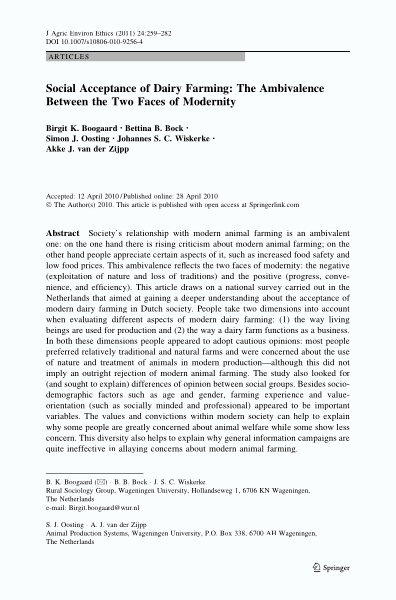Social acceptance of dairy farming: The ambivalence between the two faces of modernity
Abstract
Society’s relationship with modern animal farming is an ambivalent one: on the one hand there is rising criticism about modern animal farming; on the other hand people appreciate certain aspects of it, such as increased food safety and low food prices. This ambivalence reflects the two faces of modernity: the negative (exploitation of nature and loss of traditions) and the positive (progress, convenience, and efficiency). This article draws on a national survey carried out in the Netherlands that aimed at gaining a deeper understanding about the acceptance of modern dairy farming in Dutch society. People take two dimensions into account when evaluating different aspects of modern dairy farming: (1) the way living beings are used for production and (2) the way a dairy farm functions as a business. In both these dimensions people appeared to adopt cautious opinions: most people preferred relatively traditional and natural farms and were concerned about the use of nature and treatment of animals in modern production—although this did not imply an outright rejection of modern animal farming. The study also looked for (and sought to explain) differences of opinion between social groups. Besides socio-demographic factors such as age and gender, farming experience and value-orientation (such as socially minded and professional) appeared to be important variables. The values and convictions within modern society can help to explain why some people are greatly concerned about animal welfare while some show less concern. This diversity also helps to explain why general information campaigns are quite ineffective in allaying concerns about modern animal farming.

